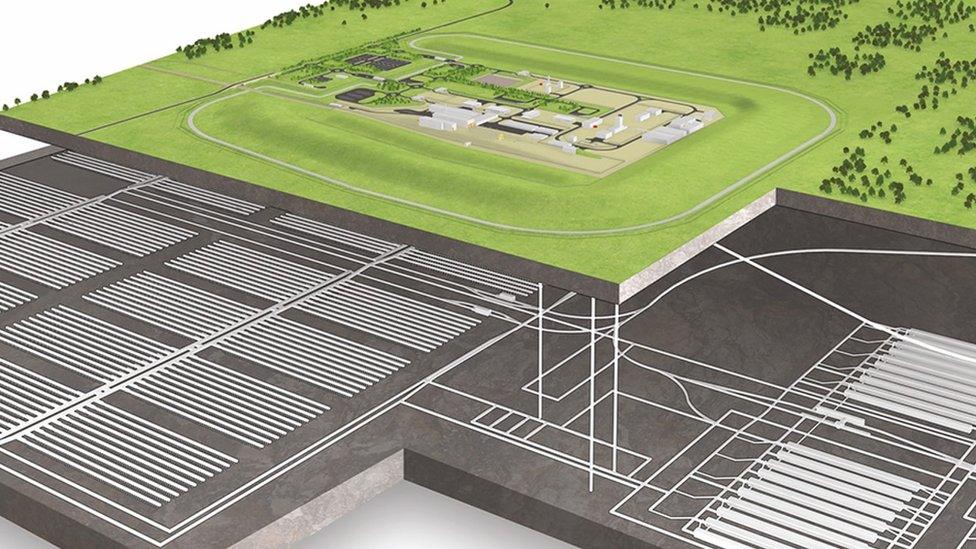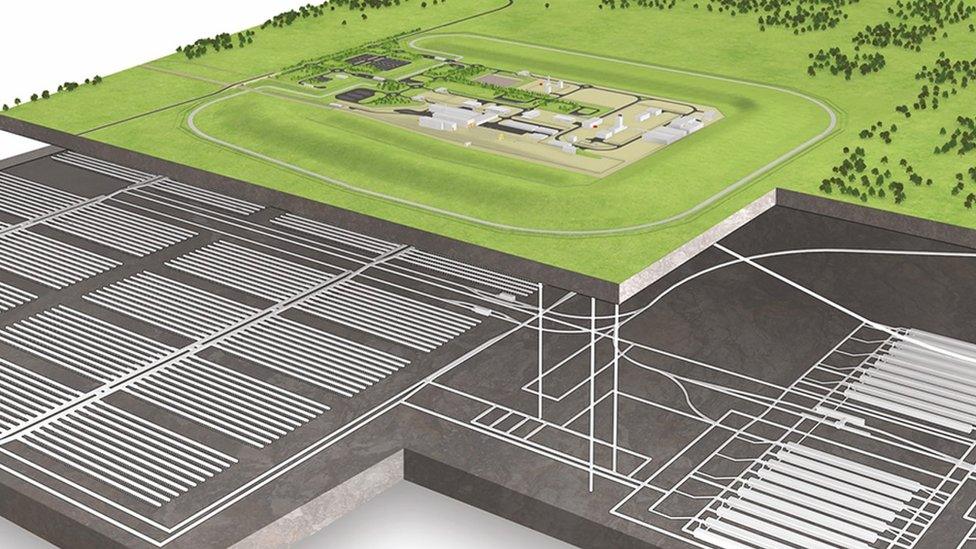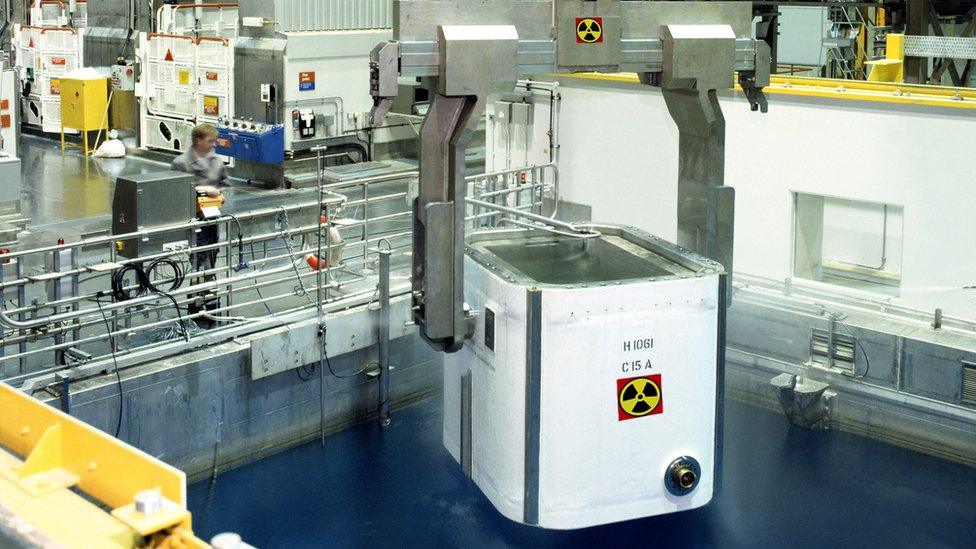Allerdale ruled out as Geological Disposal Facility site for nuclear waste
- Published

The GDF would store "higher activity" nuclear waste in a series of vaults and tunnels deep underground
A site earmarked for the underground disposal of Britain's nuclear waste has been ruled out.
Government body Nuclear Waste Services (NWS) has decided Allerdale, in Cumbria, is not suitable for the Geological Disposal Facility (GDF).
Feasibility assessments found "only a limited volume of suitable rock" on site which was not safe for storage.
Cumberland Council leader Mark Fryer said he was "pleased" to finally have a decision on the controversial plan.
"Talks of a GDF site here in Cumberland have been ongoing for more than ten years, with differing views and opinions from many," he said.
"I'm pleased that we finally have a resolution to part of the plans for where the waste will be stored and we know where we stand in terms of it not being in Allerdale."
Decision 'will take years'
The GDF programme is aimed at securely disposing "higher activity" nuclear waste in a series of vaults and tunnels deep underground, or under the sea.
There are almost 80,000 tonnes of nuclear waste at the Sellafield plant which need to be disposed of.
NWS chief executive Corhyn Parr said: "We need enough suitable geology to accommodate a GDF and to support safety cases to build, operate and close the facility.
"Our assessments show evidence of limited volume of suitable rock for a GDF in the Allerdale search area, including the adjacent inshore area."
NSW said finding a suitable site and a willing community, along with securing the necessary consents and permits, could take about 15 years. The assessment of three other potential sites is continuing and "the door also remains open" for new communities to join the process, it added.
Mr Fryer said he had "always been open to the process" and the council would represent the community regarding proposed sites in Copeland.
The government first invited local authorities to volunteer to host the nuclear storage in 2006 but said it would not proceed if local people opposed plans.

Follow BBC North East & Cumbria on X (formerly Twitter), external, Facebook, external and Instagram, external. Send your story ideas to northeastandcumbria@bbc.co.uk, external.
Related topics
- Published8 October 2021

- Published29 September 2021
